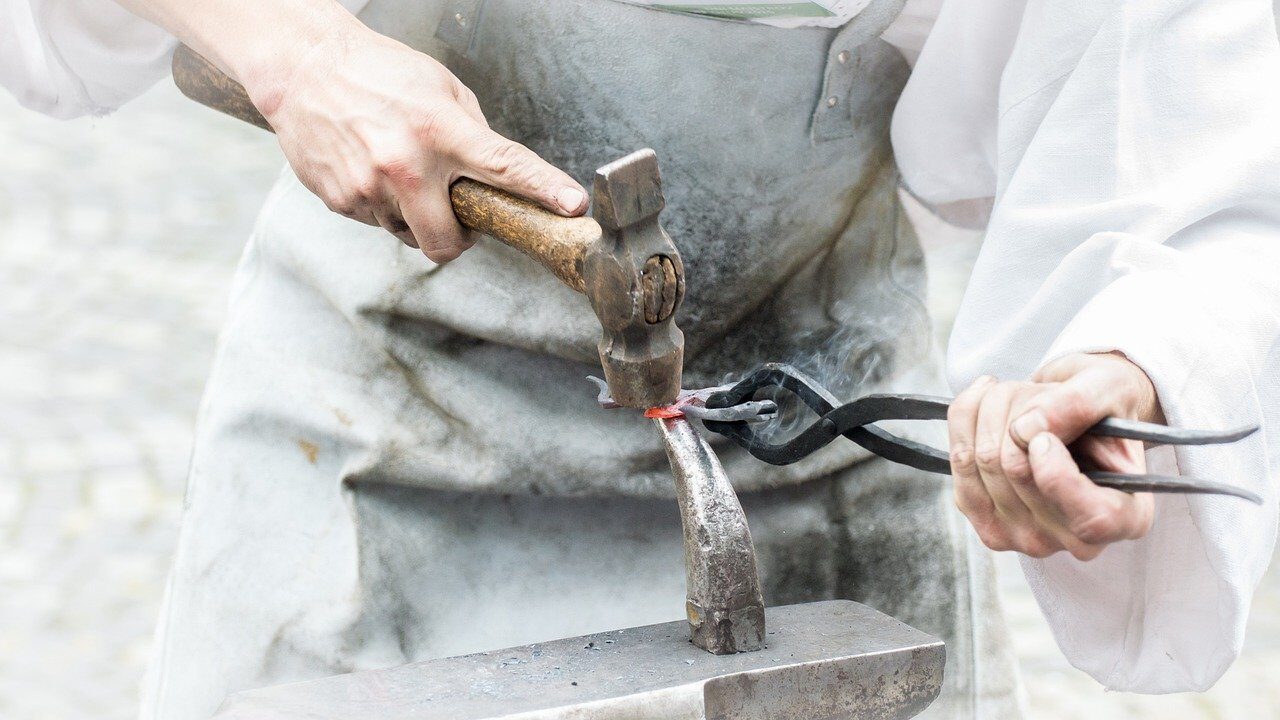ライフハックとしてではなく、英語学習にも極めて有用なのが、著名人が10分程度のプレゼンを行うTEDです。
TED Talksとは、あらゆる分野のエキスパートたちによるプレゼンテーションを無料で視聴できる動画配信サービスのことです。10年ほど前にサービスが開始されてから、政治、心理学、経済、日常生活などの幅広いコンテンツが視聴できることから人気を集めています。
RareJob English Lab
TEDは4000を超える膨大な数の動画があります。しかし慣れないうちは、動画の探し方や視聴のコツが分かりませんよね。この記事では、数多くのTEDを見てきた管理人(塩@saltandshio)が、心を揺さぶられたトークをあらすじと一緒にご紹介します。
ビジネス英会話を効率よく身につけたい方におすすめスクール
シェーン英会話
シェーンは1977年の創業以来、ネイティブ講師が英語を英語で教える「直接教授法」を採用しています。首都圏におけるスクール拠点数は、ネイティブ講師の英会話スクールでNo.1。駅から近いスクールが多いので通いやすく時間を有効に使えます。
スピークバディ パーソナルコーチング
1日1時間の短期集中トレーニングで、あなたの英語力向上をコーチが全力でサポートします。あなたの英語の世界が、劇的に変わります。
自信というスキル:アイヴァン・ジョーゼフ
ライアソン大学の体育総務部長兼サッカーチームコーチであるジョーゼフ博士は、選手をスカウトするときどこを見るかとよく聞かれます。スピード? 強さ? 機敏さ? いいえ。スポーツに限らず、人生において一番大切なスキルは自信なのだと博士は言います(約13分半)。
[PR]無料体験レッスン実施中!全国208校、創業40年の老舗英会話スクール【シェーン英会話】『自信』は一番重要なスキル
自分の子供をサッカー選手にさせたい親から、アイヴァン・ジョーゼフはよく「子どもが、おたくの大学でプレーしたいと思っているんですが、どうすればいいでしょう?選ぶ時にはどこを見ているんですか?」という質問を受けます。
そうした質問に対して、アイヴァン・ジョーゼフは「お子さんはどこに秀でているんですか?」とたずねると、たいていの親は子供が持っているスキルがどれほど素晴らしいかをアピールします。しかし、アイヴァン・ジョーゼフが選手に求めていることはスキルではありません。
私はというと、「いいですね。でも正直に言うと、それは私が求めているものではありません。一番重要なのが何かわかりますか?自信です」
このスキルなくして……、私は敢えてスキルと言いますが、このスキルなくしてサッカー選手としては役に立ちません。自分を信じる気持ちをなくしたら終わりです。
I’m like: “Yeah, not bad; but to be quite honest with you, those are the last things I’m looking for. The most important thing? Self-confidence.“
Without that skill, and I use the word skill intentionally, without that skill, we are useless as a soccer player. Because when you lose sight or belief in yourself, we’re done for.
いったい自信とはなんでしょうか。アイヴァン・ジョーゼフは自信の定義を、『自分にはできるという信念』と言います。それは自分を信じる能力、あるいは信念で、どれほど見込みがなかろうと、難しかろうと、困難に遭おうと、どんなタスクでも成し遂げられると信じられることです。
[PR]無料体験レッスン実施中!全国208校、創業40年の老舗英会話スクール【シェーン英会話】『自信』は練習で鍛えられる
そんな自信ですが、いったいどれほどの人が自分に自信を持っているのでしょうか。たいていの人は自分に自信がありません。きっと、この記事を読んでいるあなたも、自分に自信をつけたいからご覧になっているのではないでしょうか。
ここでクエスチョンです。自分に自信のない人はいったいどうすればいいのでしょう。その問いに対して、アイヴァン・ジョーゼフはこう答えています。
私は敢えて「スキル」という言葉を使いました。それが鍛えられるものだと考えているからです。
I use the word skill because I believe it can be trained. And I’ll show you a couple of ways in which we do.
自信をつける方法、それはズバリ『繰り返し』です。何度も何度も繰り返し、自信が付くまで練習を行うのです。マルコム・グラッドウェルが提唱する『1万時間の法則』をご存知でしょうか。自信は一朝一夕で身に着くものではありません。繰り返し練習を行い、鍛えることによって自分のものに出来るのです。
1万時間の法則とは、ある分野のエキスパートになるには1万時間の練習・努力・勉強が必要だという理論です。 1万時間の努力がなければ一流にはなれないとする理論です。 イギリス出身の元新聞記者・マルコム・グラッドウェル氏が広めて一躍有名になりました。
1万時間の法則とは|継続して取り組むコツ7選と量より質を高める方法4選(マイナビニュース)
それと同時に、アイヴァン・ジョーゼフは『そのスキルあるいはタスクが、目新しいものであってはならない』と言います。サッカーでいいプレイしたいのなら、あるいは会議で堂々と発言したいのであれば、その状況と似た状況に何度も自分の身を置くことも大切です。
スキルが上達する方法については、エドアルド・ブリセーニョもTED Talksで紹介していましたね。

繰り返し練習を行っていれば、いざ本番が来た時には緊張することはなくなります。それが練習の力なのです。
[PR]知って得する、知らないと損をする!すぐに役立つ相手に合った「伝え方」のコツ!大切なのは失敗から立ち直れるかどうか
そのうえで、さらに重要なのが『失敗から立ち直れるか』です。あえてアイヴァン・ジョーゼフがそう言うのは、ほとんどの人が最初の逆境を乗り越えることが出来ないからです。
しかし、歴史に名を残した人は何度も繰り返し、失敗を乗り越えて成功を手にしています。発明王であるエジソンが、電球を発明するまでに何千回も失敗を繰り返したエピソードは、よく耳にする話ですね。
でも、練習、練習、練習……。そして失敗にへこたれないこと。繰り返しというよりは、粘り強さと言うべきかもしれません。
みんな繰り返しはしていても、本当にやり通す人というのは多くありません。これが自信を付ける1つの方法です。
But, practice, practice, practice, and do not accept failure. Maybe it shouldn’t be repetition, maybe the answer should be persistence.
Because we all repeat something but very few of us really will persist. So that’s one way to build self-confidence.
こうした言葉を、わたしたちはよく耳にします。しかし、たいていの人はそれが出来ません。だからこそ、何度もくりかえし言われ続ける言葉といえます。似たような話を、ラリー・スミスもTED Talksで語っていましたね。

途中でやめてしまう人が多いからこそ、うまくいく(目標地点)まで続けられたときに、人は自然と自信が身についているものなのでしょう。
[PR]検定試験合格者累計140万人!スマホ対応☆国家資格ほか資格取得ならSMART合格対策講座自分をほめてくれるのは自分だけ
わたしたちは自分の心の声をよく聞きます。それは、だいたいがネガティブな発言です。「どうか先生にあたりませんように」、「重要な質問を聞かれませんように」など、頭の中から聞こえる自分の声は常に後ろ向きです。そして、世の中を見渡せばネガティブな発言ばかりです。こうした事態に、アイヴァン・ジョーゼフは苦言を呈します。
思考が行動に影響すると知っていて、どうして自分にネガティブなことを言うんですか?
必要なのはむしろ自分の価値を認める言葉です。
We know that our thoughts influence actions, why do we want to say that negative self-talk to ourselves?
We need to get our own self-affirmations.
自分が自分を褒めずに、誰があなたのことを褒めてくれるのでしょうか。こどもの頃は、周りにいる大人たちが褒めてくれました。しかし、大人になるにつれ自分を褒めてくれる人はだんだんといなくなってきます。だからこそ、自分が存在する意義や素晴らしさについて、自分自身で再確認する必要があるのです。
さらに、「自分をけなすような人から離れよう」とアイヴァン・ジョーゼフは言います。なぜなら、人は他人からネガティブな言葉を投げかけられると、自分がそのような人であると信じてしまうからです。これは、子育てや部下など人を育てるときにもいえます。
なぜなら私たちは、人からネガティブな言葉を投げかけられるのと同時に、あやまった言葉を投げかけて、相手の自信を奪いがちだからです。
しかし、相手の素晴らしいところを見つけて褒めてあげれば、相手は落ち込むことも、自信をなくすことも無くなるでしょう。強化したい良い行動を褒めること、正しくやれた時に認めてあげること。そうすることで、私たちは相手にも自信をつけさせてあげることが出来るのです。
[PR]しちだの魔法ペンなら35日でバイリンガルに!楽天4部門1位の英会話!<七田式>まとめ:まずは自分を信じよう
誰でも、常にポジティブな気持ちでいたいと考えています。自分に自信があれば、何だってできると思っている人もいるでしょう。しかし、はじめに自分が自分を信じなければなにも始まりません。なにかに挑戦してうまくいったときには、自分を褒めてあげましょう。
もしも、ネガティブな言葉を受け取った時には、前向きに受け取ることも大切です。実際にアイヴァン・ジョーゼフも、奥さんと付き合う前に彼女の女友達から遠回しに断りの連絡を受け取ったことがありました。しかし、アイヴァン・ジョーゼフはそれをどこまでも前向きに受け止めたのです。
望みなしと思う人もいるでしょうが、私は「つまり チャンスはあるってことだね!」と思いました。
Some people, it’s like, there’s no chance. I’m like: “You’re saying there’s a chance.”
自信はスキルです。繰り返し練習を行うことによって鍛えることが出来ます。もしあなたがなにかに挑戦して、それが失敗に終わったとしても、自分をけなすことだけはやめましょう。あなたを褒めて奮い立たせてくれるのは、あなたしかいないのですから。
英語全文
In my past life as a soccer coach, once you won a national championship, everyone wants to come play for you. Really not true. Once you paid them $ 25,000 a year in scholarships, everybody wants to come play for you.
<全文を読む>▼クリック▼
I’m like: “Yeah, not bad; but to be quite honest with you, those are the last things I’m looking for. The most important thing? Self-confidence.” Without that skill, and I use the word skill intentionally, without that skill, we are useless as a soccer player. Because when you lose sight or belief in yourself, we’re done for.
I use the definition of self-confidence to be the ability or the belief to believe in yourself, to accomplish any task, no matter the odds, no matter the difficulty, no matter the adversity. The belief that you can accomplished it, self-confidence.
Some of you are saying, “Great, I don’t have it. I’m so shy. I’ll never do that, bla, bla, bla.” And you start to drag all the way down here. But, I use the word skill because I believe it can be trained. And I’ll show you a couple of ways in which we do. Hopefully I won’t run out of time.
I don’t use any slides because my speech always goes here, or here, or here. So we’ll see which way we get to. The easiest way to build self-confidence: there’s no magic button. I can’t say: “Hey, this plane is going down, who can fly? Put your hand up.” “I can, I’m confident!” Repetition, repetition, repetition. Right? What does Malcom Gladwell call it, the 10,000-hour rule? There’s no magic button.
I recruited a goalie from Colombia, South America one year. Big, tall 6’3″ man. You know, he had hands like stone. I thought he was like Flipper. Everytime I threw him the ball, down, onto the ground. I was like, oh my god, we’re in trouble. Simple solution: get to the wall, kick a ball against the wall and catch it. kick the ball against the wall and catch it. His goal was 350 a day for eight months. He came back, his hands were calloused, the moisture on his hands were literally gone, he is now playing in Europe.
Magic? No.
Repetition, repetition, repetition.
The problem is, we expect to be self-confident but we can’t be unless the skill, or the task we’re doing, is not novel, is not new to us. We want to be in a situation where we have so much pressure in that and what I mean, cause pressure builds diamonds, we want to be in a situation where “hey, I’ve done this a thousand times”. I did my speech, and I practiced in front of a mirror: bla, bla, bla, bla, bla, bla.
Hey I’m sounding good.
And then I went in front of my kids, and my wife. I said, oh gosh, I got a little nervous. Then I’d get in front of Glenn Gould, Oh my goodness, I am a little more nervous! By the time I get to the ACG, where 2,500 people, can’t say anymore, right? Twenty-five hundred people, where twenty-five hundred people are there, I won’t have a single ounce of nervousness because of my ability to practice.
Right?
Over, and over, and over, again.
The problem with repetition is: how many of us bail after the first bit of failure? How many of us bail after the first bit of adversity? Edison was on that video, and it depends who you ask, there’s anywhere from 1,000 to 10,000 tries to build that light bulb. 1,000 to 10,000.
J.K Rowling should be on that video. Do you know how many publishers she took her Harry Potter book to? I believe the number was 12 or 13… I am pretty confident but after two or three noes I’d be like: “damn it!”. After six or seven, I’m like: “maybe not!” Definitely after nine or ten I’d be looking to be a soccer coach or something else besides an author.
Right?
I mean, twelve times somebody said no. But, practice, practice, practice, and do not accept failure. Maybe it shouldn’t be repetition, maybe the answer should be persistence. Because we all repeat something but very few of us really will persist. So that’s one way to build self-confidence.
Get out there.
Do what you want to do and do not accept no. The other one is self-talk. We all have a self-talk tape that plays in our head. Anybody go shopping and put on a pair of pants this week? If you’re a woman, the first thing that always comes: “damn I look fat in these pants!.” And if you’re a man, it’s the opposite: “Oh god, I got no muscle, I’m so flabby!” Right? We all have this tape that plays in our head. As a student, if they asked me the question, it was like: “Oh, gee please professor don’t pick me, I don’t know the answer.” I’d look down.
Right?
If you’re in the b…when I, let me tell you something, and the VP of business adminis. here, I shouldn’t repeat this, but when they hired me as an Athletics director, I sat in an architect’s meeting, and I am as dumb as a post when it comes to anything to do with numbers and angles. And they are like: the fundibulator valve of the architectural, uh, what do you think doctor Joseph? Uh, let me look into that for you and get back to you.
Right?
I was in a, oh god god, please don’t ask me, please don’t ask me. We all have this negative self-talk that goes in our head. Guess what? There’s enough people that are telling us we can’t do it. That we’re not good enough. Why do we want to tell ourselves that?
We know for a fact that thoughts influence actions. We saw it there with the video Sheldon, Dr. Levy showed. We know that our thoughts influence actions, why do we want to say that negative self-talk to ourselves? We need to get our own self-affirmations. Muhammad Ali, what was his self-affirmation? I am the greatest! Who else is going to tell you?
There need to be quiet moments in your bedroom, quiet moments when you’re brushing your teeth. That we need to reaffirm: “I am the captain of my ship and the master of my fate!” That is my affirmation.
I came from a school of one thousand people, I lived in a town of one thousand people for fifteen years; there’s no reason that I should be in charge of an Athletics department, building maple leaf gardens. But I am the captain of my ship and the master of my fate. If I don’t say it, if I don’t believe it, no one else will.
How do you build self-confidence?
Get away from the people who will tear you down.
There’s enough of that.
Muhammad Ali, I am the greatest! There is no one better than me. There’s a difference between hubris, and ego, and false pride. It’s just reminding yourself in quiet silent moments, I put it down on a list, it’s right beside my mirror, right? about all the things that make me who I am. Because I make enough mistakes, and the newspapers will recognize it, and people around me will recognize it; and they’ll tear me down, and pretty soon I’ll begin to believe it.
There was a time when my confidence was really low. There was a time when I took this job when I came from Iowa, I don’t know if I could do it. I had to bring out my self-confidence letter. A letter I wrote to myself when I was feeling good. Ivan, congratulations on getting your PhD before 40. Congra…I am 40, under. Congratulations on winning a national championship. Good job on raising three good kids and marrying the right woman. I wrote a letter to myself, it was my own brag sheet. My own letter about the things I was proud of. Because there are moments, and we’ll all experience them in our career, in our lives, in our job hunting, in our relationships; when we are not feeling good about who, and what, and where we are.
And I had to bring out that letter and read it time and time again, for a period of about two weeks, to weather me through that storm. It was important. Stop the self-talk, the negative self-talk. If you watch you’ll see some athletes that have a little bandage, or a little brand around them.
Lance Armstrong is a perfect one. What’s his self-affirmation? Livestrong isn’t a brand, it was to remind him of who he was. Live strong. Then it became a brand. He would move that from one arm to the next arm, when doubt and fear came into his mind. Live strong, put it on there, let’s go. We’ll all have it, we place it.
Two ways to build self-confidence.
I’m worried about my time I’m gonna tell you of one way you can build self-confidence in others. We are coaches and educators, we are teachers, we are people who will create value in the world; and in doing that, we are critical by the nature of what we do. I am a coach, I want you to score a goal.
The ball went over high. “Dang it!” The ball went high! “Thank you coach, I know that. Feedback tells me that.” So what do we do?
I need you to put your elbow here, I need you to put your knee over the ball, I need you to follow through. Boom. Land. Great. Notice, I never made it as a professional. What can we do?
We fix mistakes.
When I’m fixing that mistake: “Johnny, this is terrible, you need to bend your knee, you need to do this, this.” What have I done to Johnny’s self-confidence? Bend your knee, then do this, then do this. Next thing you know, Johnny’s crushed. Ignore what Johnny does wrong and find Bob or Sally or Freda over here. Great goal Freda, I love how you kept your knee low, you followed through, and you landed like this. Great job! Johnny: “Oh?” Great! Johnny’s not demoralized. His confidence isn’t shot, and what I’ve done is, I’ve built up Freda’s. Imagine how we could change the way we parented kids. Instead of: “get that glass off the counter, what’s wrong with you?” If we catch the mother, good. Great job! Great job. Thank you Alice for taking your glass to the counter.
It sounds simple but we forget about it.
Or as educators, or as somebody as a team, if we manage to praise the positive behaviour that we wanted to reinforce. We forget it. It sounds so simple. Catch them when they’re good. We forget it. It’s simple. Here’s what they did. There was a study in Kansas that did this. They did video, and we all do video. And we show the video of them doing the run of the play: “Um, this goal happened because the basket wasn’t protected, we didn’t rotate here, right? We needed to do this and then cover the slot.” And, if that’s the baseline, improvement of the Kansas State team went like this. Then, they said they ignored all of that and they just showed them the times they did it right. The times they did it perfect. That presented no goals, spoke to the same points, improvement went like that. It changed and revolutionized the way we as coaches interact with our student athletes.
We can apply that to the business world, we can apply that to our student group works, we can apply that to our management teams.
Easily: catch them when they are good.
Last and certainly not least. My son is really good at this. Self-confident people interpret feedback the way they choose to. I ask my son who is by the far a terrible, terrible athlete, gets it from his dad. The game’s… How’s the game? Oh great! I scored three goals, I got two assists. I’m like: “I did not see him touch the puck!” But he has his own perception of how he did! I love it! Right? I’m the…I’m that guy! I’m like: “I remember when I was taking when I met my wife, it was in the commons. “Paulie, would you like to go to the movies? Ladies? Tingly, tingly, tingle.” And she goes: “Ah, no.” I asked her again. Cause I think that she just hasn’t seen me in the right light. Maybe, that’s not the wrong shirt on. Right? Cause I’m interpreting that the way I want to interpret it. Finally I asked her out again. She gave me this one comment, right? Or, she sent it to her friend.
Cause that’s the way you did it back then.
“She wouldn’t date you unless there was the last person on Earth, hell was freezing over, there was a small chance we had to save the planet Earth. Some people, it’s like, there’s no chance. I’m like: “You’re saying there’s a chance.” Right? Because that’s how I’m gonna interpret it.
If I could give you one thing to take from this, it is: no one will believe in you unless you do. Listen to the words of that video, here’s to the crazy ones, the misfits, the rebels, the troublemakers, the round pegs in the square holes. We’re supposed to be different, folks. And when people look at us, believe in yourself.
Thank you.
<閉じる>
\ ほかにも気になるトークが満載! /








